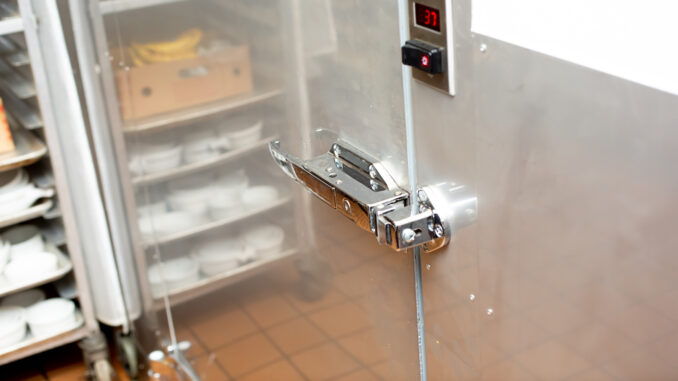
By Tom Wainman, Director, Connected Buildings, Senet, a Netmore Company - 6.5.2024
When it comes to restaurant technology, Long Range Wide Area Network (LoRaWAN) and sensor-enabled devices are transforming operations and paving the way for significant efficiency and sustainability improvements. From monitoring temperature fluctuations, improving sustainability initiatives, and automating tasks, the benefits of using LoRaWAN technology in restaurants are both diverse and impactful.
Let’s explore three specific use cases where the adoption of LoRaWAN yields tangible advantages for restaurant managers and facility owners, illustrating how the technology reduces expenses and enhances profitability in an increasingly competitive industry.
LoRaWAN technology optimizes cold storage and temperature-controlled logistics.
At its core, LoRaWAN solutions seamlessly connect sensor-enabled devices to various restaurant platforms and applications, offering insights into critical aspects of operations. One fast growing use of the technology is for temperature monitoring in cold storage areas. This automated process enables restaurant personnel to monitor temperature variations with precision, ensuring compliance with food safety regulations and minimizing food waste.
For example, Quick Service Restaurants (QSRs) adopting LoRaWAN-enabled temperature sensors have streamlined daily checks by 30-60 minutes, liberating staff time and reducing potential errors. By deploying these sensors in refrigerators, freezers, and even delivery vehicles, restaurant operators can actively monitor temperature fluctuations, mitigating the risk of food spoilage and upholding the quality and safety standards of perishable goods.
LoRaWAN technology offers a wide range of sustainability initiatives for restaurants.
Environmental and infrastructure monitoring devices are capable of maintaining communication over extended distances and in challenging conditions, making them ideal for monitoring building energy consumption and optimizing the performance of heating and cooling systems based on real-time data insights. As a result, restaurants can effectively reduce their carbon footprint and realize substantial cost savings over time.
Additionally, restaurants can deploy water leak sensors throughout their facility to quickly identify leaks, which results in less damage and ultimately less water loss. This allows restaurants to curb waste and maximize water efficiency. Ultimately, this not only leads to reduced water bills and repair cost savings, but also plays a role in broader resource conservation initiatives.
LoRaWAN technology supports task automation and real-time inventory monitoring.
Restaurants that have integrated carrier-grade LoRaWAN connectivity into their systems have reported substantial time savings for managers – over 16 hours per month. This automation is particularly beneficial for large-scale restaurant operations.
Coupled with automating tasks, restaurants can track inventory levels for both food and supplies in real-time, right from their kitchens and storage areas. By optimizing inventory levels and minimizing excess stock, restaurants can effectively reduce food waste, cut carrying costs, and enhance overall inventory management efficiency.
As restaurants expand their IoT deployments alongside their growing operations, the scalability and adaptability of LoRaWAN solutions become increasingly invaluable. With its forward-looking capabilities, restaurants that adopt LoRaWAN will further enhance operational efficiency and create even more sustainable business practices. Looking ahead, LoRaWAN represents not just a solution for today but a strategic investment for the future of the restaurant industry.
 Tom Wainman is Commercial Director, QSR and Smart Buildings for Senet, a Netmore company, which is a global LoRaWAN® network operator. He brings close to 30 years of wireless technology experience to Senet. Prior to Senet, Tom enjoyed a history of driving growth and incremental market share in Fortune 500 companies with Nextel, Sprint, and AT&T, among other roles.
Tom Wainman is Commercial Director, QSR and Smart Buildings for Senet, a Netmore company, which is a global LoRaWAN® network operator. He brings close to 30 years of wireless technology experience to Senet. Prior to Senet, Tom enjoyed a history of driving growth and incremental market share in Fortune 500 companies with Nextel, Sprint, and AT&T, among other roles.
Are you an industry thought leader with a point of view on restaurant technology that you would like to share with our readers? If so, we invite you to review our editorial guidelines and submit your article for publishing consideration.

